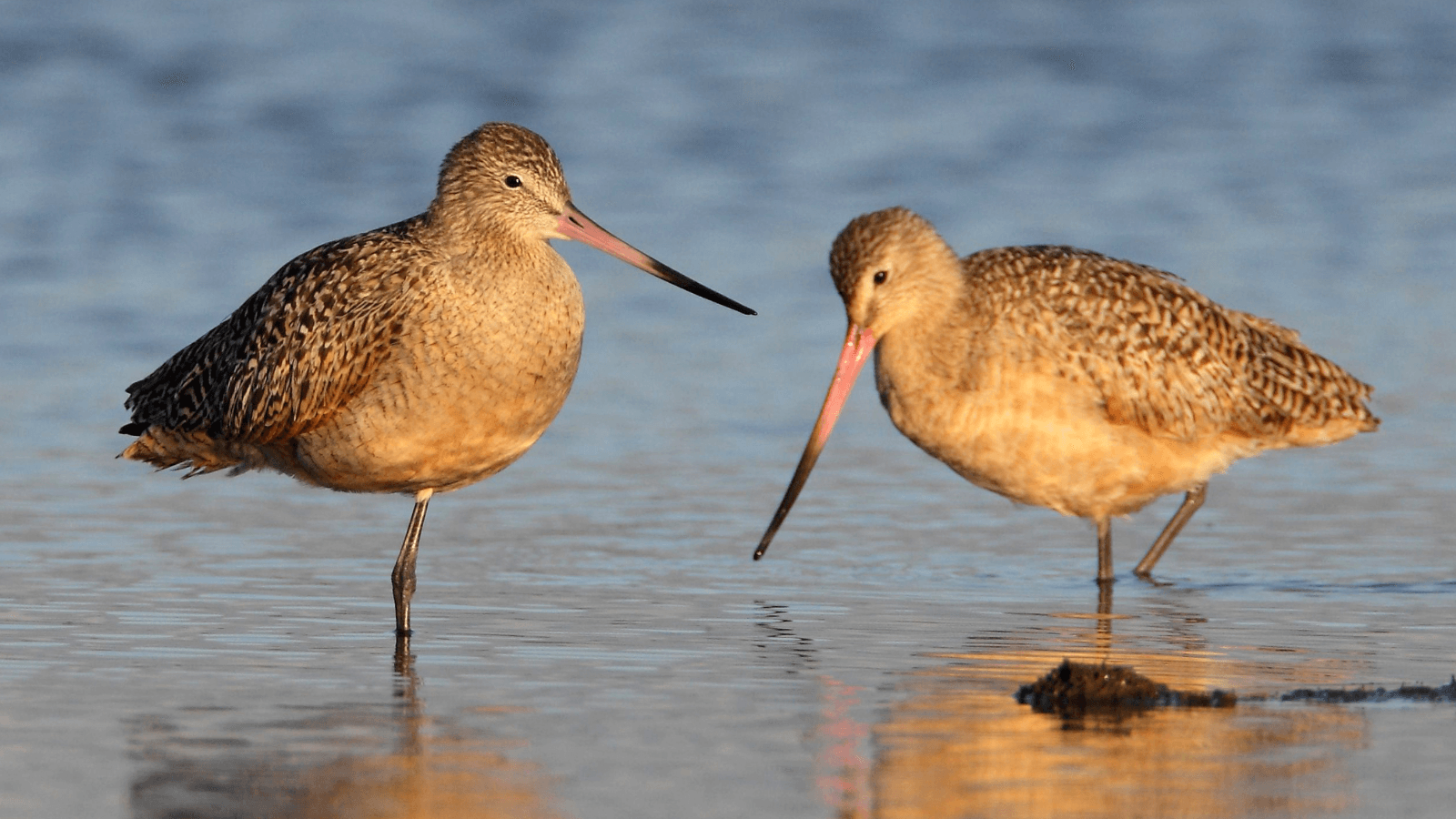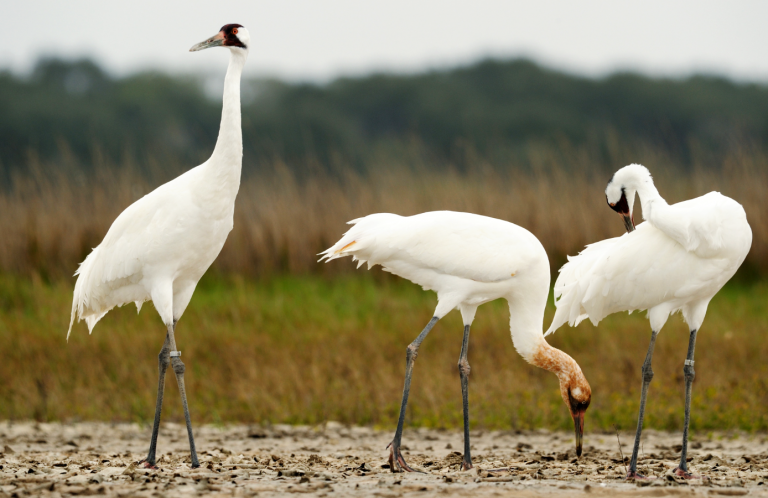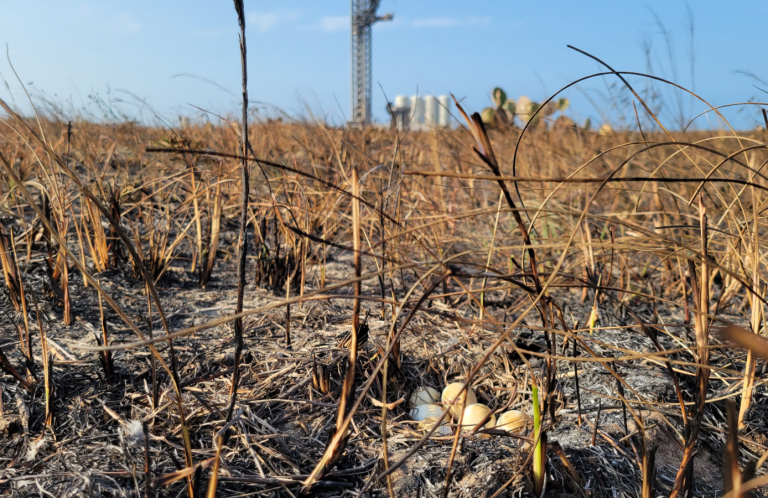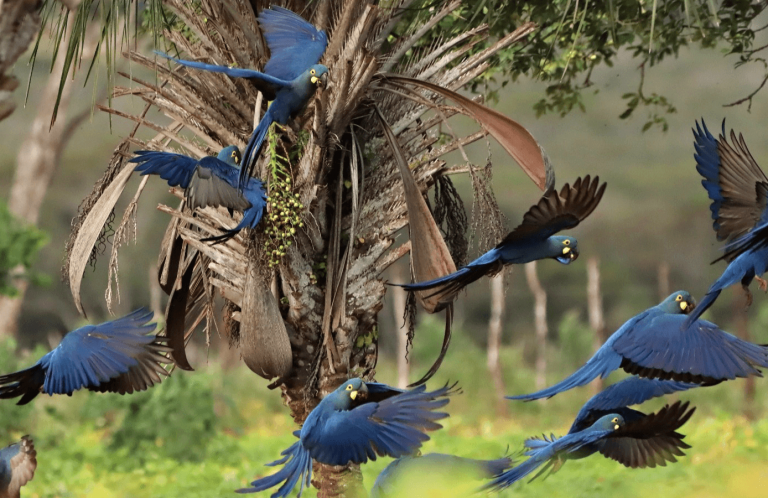Lawsuit Targets Utah State Government for Failing to Protect the Great Salt Lake

Conservation and community groups sued the state of Utah today for its failure to ensure that enough water reaches the Great Salt Lake to prevent ecological collapse.
Upstream diversions have deprived the lake of water, causing a significant drop in water levels that threatens its unique ecological values and human health throughout the region. Today's lawsuit says state officials have breached their trust obligations to Utahns by failing to take appropriate and necessary action to address the crisis and protect the lake.
“The baby steps Utah has taken at the Great Salt Lake are woefully inadequate to sustain the American West's largest wetland ecosystem, and we need the state to stop ignoring the upstream water diversions that are spiraling the lake and its wildlife into oblivion,” said Zach Frankel, Executive Director of the Utah Rivers Council.
The lawsuit seeks a court order directing Utah's leaders to implement meaningful solutions that will provide enough water to the Great Salt Lake for the people and wildlife that depend on it.
“In other parts of the world, where saline lakes have been allowed to shrivel up because of upstream diversions like those happening at the Great Salt Lake, the end result has been public health disasters from the clouds of relentless toxic dust,” said Dr. Brian Moench, President of Utah Physicians for a Healthy Environment. “Utah's leaders are prioritizing these water diversions over protecting their own people, so the courts must intervene.”
The Great Salt Lake is the largest saltwater lake in the Western Hemisphere and an iconic American ecosystem. It provides habitat for millions of migratory birds and supports a variety of industries, including brine shrimp fishing, tourism, recreation, and skiing, which contribute billions of dollars to Utah's economy.
“The Great Salt Lake belongs to the people of Utah and the state has a legal obligation to protect this resource,” said Stu Gillespie, Senior Attorney for Earthjustice's Rocky Mountain office. “But the state has sidestepped that obligation and failed to respond to the crisis facing the lake. Upstream water diversions threaten the lake's biodiversity, industries that depend on the lake, and human health throughout the region. It is time for Utah officials to address the problem and safeguard this public resource.”
Since 2020, climate change and upstream diversions for crops, homes, and industry have contributed to an annual deficit of more than 1 million acre-feet of water (enough water to fill 500,000 Olympic swimming pools). As a result, the lake's elevation recently dropped below the point experts say is necessary for its continued viability. Further declines could lead to the complete collapse of the Great Salt Lake's ecosystem, which would be catastrophic for biodiversity, the industries and jobs that depend on a healthy lake, and the health of Utah's residents.
“The health of northern Utah's entire population depends on the Great Salt Lake's survival, and I hope this lawsuit can help save it,” said Deeda Seed, Utah Campaigner at the Center for Biological Diversity. “In addition to the millions of people who live here, so many plants and animals depend on the lake, including 12 million birds from more than 300 species. They make this area unlike anywhere else. The state of Utah's complete abdication of its responsibility to protect the lake threatens our ability to live in this spectacular region.”
As the lake's water is depleted, sediments containing fine particulates and toxic pollutants are exposed, which the wind will carry into nearby communities. The lakebed is laced with arsenic, mercury and other toxic substances that will be inhaled by millions of people living in the vicinity, threatening public health. According to a recent NASA study, residents on the west side of Salt Lake City and in Tooele County will be disproportionately harmed by the exposed lakebed and increased toxic pollutants.
“The Great Salt Lake is of critical global importance for bird species such as the Eared Grebe, Marbled Godwit and Wilson's Phalarope,” said Michael J. Parr, President of American Bird Conservancy. “We can't afford to have this significant body of water turn into dust. Water management decisions need to prioritize both water quantity and water quality while balancing the needs of birds, people, and local economies.”
Utah's common law and constitution impose robust public trust duties that require the state to protect the Great Salt Lake, whose waters belong to the people of Utah. Leading experts have concluded that the state cannot sustain a minimum viable water level of 4,198 feet without modifying upstream diversions.
Recent polling from Utah State University shows that drought and a drying Great Salt Lake are the top two environmental concerns for residents. Nearly 80 percent of respondents ranked Utah's water crisis as a six or higher on a ten-point scale of severity.
“Utahns want to see the Great Salt Lake protected. Unfortunately, our state leaders have repeatedly demonstrated that they aren't interested in taking meaningful action to address this urgent issue,” said Maria Archibald, Lands and Water Programs Senior Coordinator for the Sierra Club's Utah Chapter. “The Great Salt Lake is central to Utah's very identity and the lifeblood for many migratory bird species. It must be safeguarded to protect communities from the severe public health, economic, and environmental consequences its collapse would entail.”
Earthjustice is representing American Bird Conservancy, Center for Biological Diversity, Sierra Club, Utah Physicians for a Healthy Environment, and Utah Rivers Council in the suit.
###
American Bird Conservancy (ABC) takes bold action to conserve wild birds and their habitats throughout the Americas. Inspired by the wonder of birds, we achieve lasting results for the bird species most in need while also benefiting human communities, biodiversity, and the planet's fragile climate. Our every action is underpinned by science, strengthened by partnerships, and rooted in the belief that diverse perspectives yield stronger results. Founded as a nonprofit organization in 1994, ABC remains committed to safeguarding birds for generations to come. Join us! Together, we can do more to ensure birds thrive.
Earthjustice is the premier nonprofit environmental law organization. We wield the power of law and the strength of partnership to protect people's health, to preserve magnificent places and wildlife, to advance clean energy, and to combat climate change. We are here because the earth needs a good lawyer.
The Center for Biological Diversity is a national, nonprofit conservation organization with more than 1.7 million members and online activists dedicated to the protection of endangered species and wild places.
The Sierra Club is America's largest and most influential grassroots environmental organization, with millions of members and supporters. In addition to protecting every person's right to get outdoors and access the healing power of nature, the Sierra Club works to promote clean energy, safeguard the health of our communities, protect wildlife, and preserve our remaining wild places through grassroots activism, public education, lobbying, and legal action. For more information, visit www.sierraclub.org.
Utah Physicians for a Healthy Environment (UPHE) is dedicated to protecting the health and well-being of the residents of Utah by promoting science-based education and interventions that result in progressive, measurable improvements to the environment.
The Utah Rivers Council is a grassroots organization dedicated to the conservation and stewardship of Utah's rivers and sustainable clean water sources for Utah's people and wildlife.
Founded in 1994, we work to protect Utah's rivers and clean water sources for today's citizens, future generations and healthy, sustainable natural ecosystems. We implement our mission through grassroots organizing, direct advocacy, research, education, community leadership and litigation.
Media Contact
Jordan Rutter
Director of Communications
media@abcbirds.org


















































